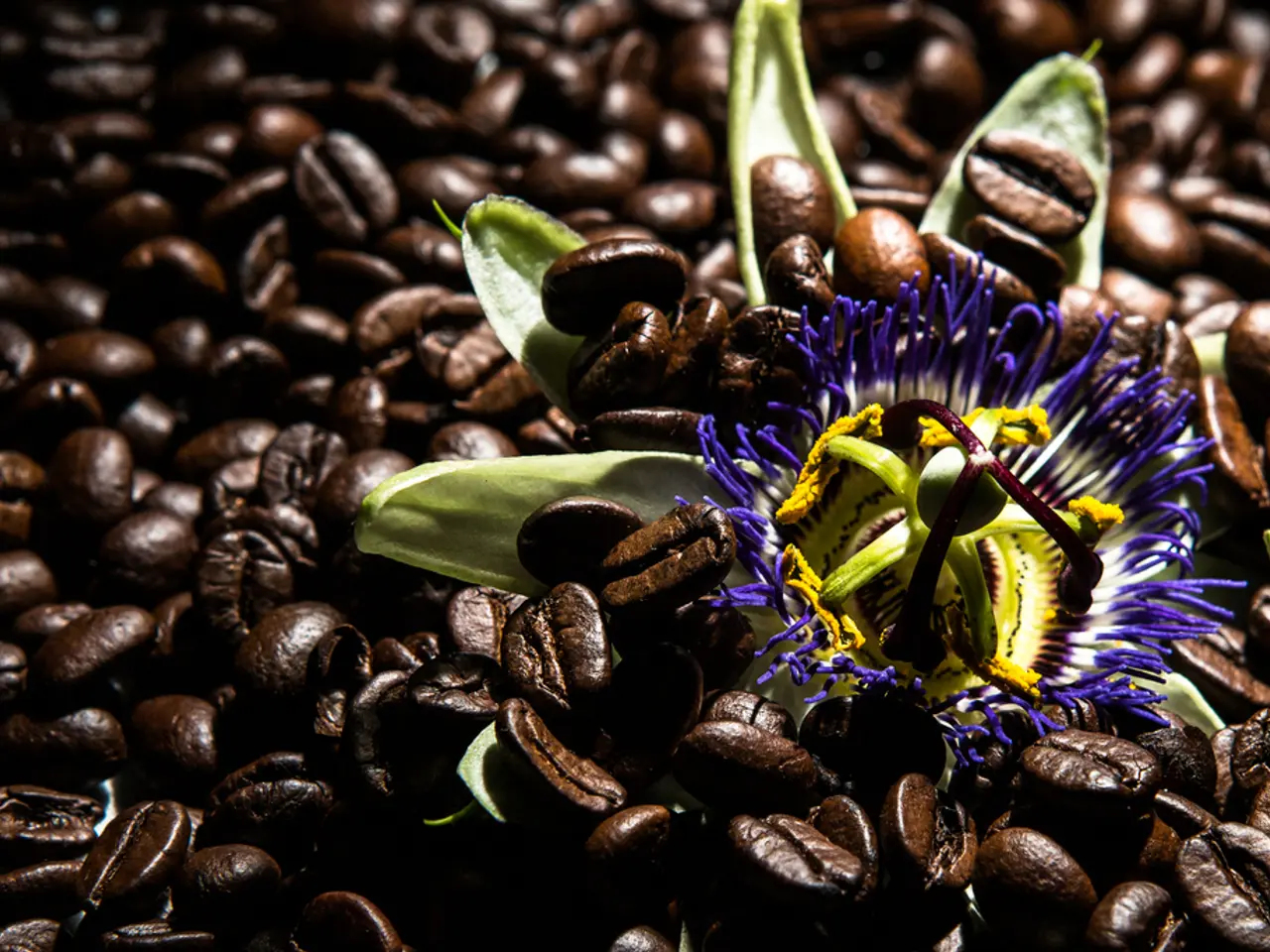Enhance Your Garden's Green: Utilizing Coffee Grounds as a Compost Booster for Plants
In the quest to create a sustainable garden, coffee grounds have emerged as a potential eco-friendly fertilizer. However, it's important to understand how to effectively compost and use coffee grounds to reap their benefits without harming your garden.
Balancing the Compost Pile
To compost coffee grounds effectively as a garden fertilizer, mix one part coffee grounds with three parts brown waste such as dried leaves or newspaper shreds to balance carbon and nitrogen in the compost pile[1][2]. This ratio ensures a healthy composting process and a nutrient-rich end product.
Avoid Direct Application
Avoid adding fresh coffee grounds directly to soil or in thick layers because they can block air and water penetration and might be too acidic for some plants[1][2]. Instead, consider working coffee grounds into the soil during planting, after adding nitrogen fertilizer, to help promote plant growth[3].
Additional Composting Tips
- Combine coffee grounds with other organic materials like grass clippings, vegetable scraps, or wood chips to enrich the compost and improve microbial activity[1][2][3].
- Allow the compost to fully break down before applying it to plants, preventing mold growth and ensuring a balanced nutrient release[1].
- Coffee grounds in compost improve soil structure by increasing water retention and aeration and add valuable nutrients like nitrogen, potassium, and trace minerals[1][2].
- Composted coffee grounds encourage beneficial earthworms, which help soil health[1][2].
- You can also make "compost tea" by steeping used coffee grounds in water overnight and use the liquid as a fertilizer[2][3].
Direct Application and Acid-Loving Plants
Fresh coffee grounds can be sprinkled around acid-loving plants like azaleas, hydrangeas, blueberries, and lilies. However, direct application of used coffee grounds to city vegetable gardens can potentially reduce plant growth[4].
Allelopathic Properties
Coffee grounds have allelopathic properties, which may suppress the growth of certain weeds[5]. This can be beneficial for maintaining a weed-free garden, but it's essential to monitor the impact on desirable plants.
Other Considerations
- Certain fungal pathogens may be suppressed by the use of fresh coffee grounds[6].
- Root crops like radishes and carrots respond favorably to fresh coffee grounds when mixed with the soil at planting time[7].
- Uncomposted coffee grounds can prevent moisture and air from moving in and through the soil, and can compact readily[8].
- Tomatoes, cabbage, soybeans, fruit trees, corn, roses, and camellias respond well to coffee grounds as a fertilizer[9].
- Used coffee filters can also be composted[10].
- Composting coffee grounds can improve the texture of the soil[11].
- Coffee is the second most traded commodity in the world, after crude oil[12].
- Composting coffee grounds can make the nitrogen available to plants in a form they can use[13].
- Microbes in the soil break down coffee grounds to make the nitrogen available for plants[14].
- Coffee ground tea can be made by mixing spent coffee grounds with water and using it as a liquid fertilizer[15].
- Coffee grounds can lower the pH of soil, which is beneficial for acid-loving plants, but only if unwashed[16].
In conclusion, composting coffee grounds is a great way to create a nutrient-rich fertilizer for your garden. By following these guidelines, you can effectively harness their fertilizing benefits without harming your garden. Happy composting!




